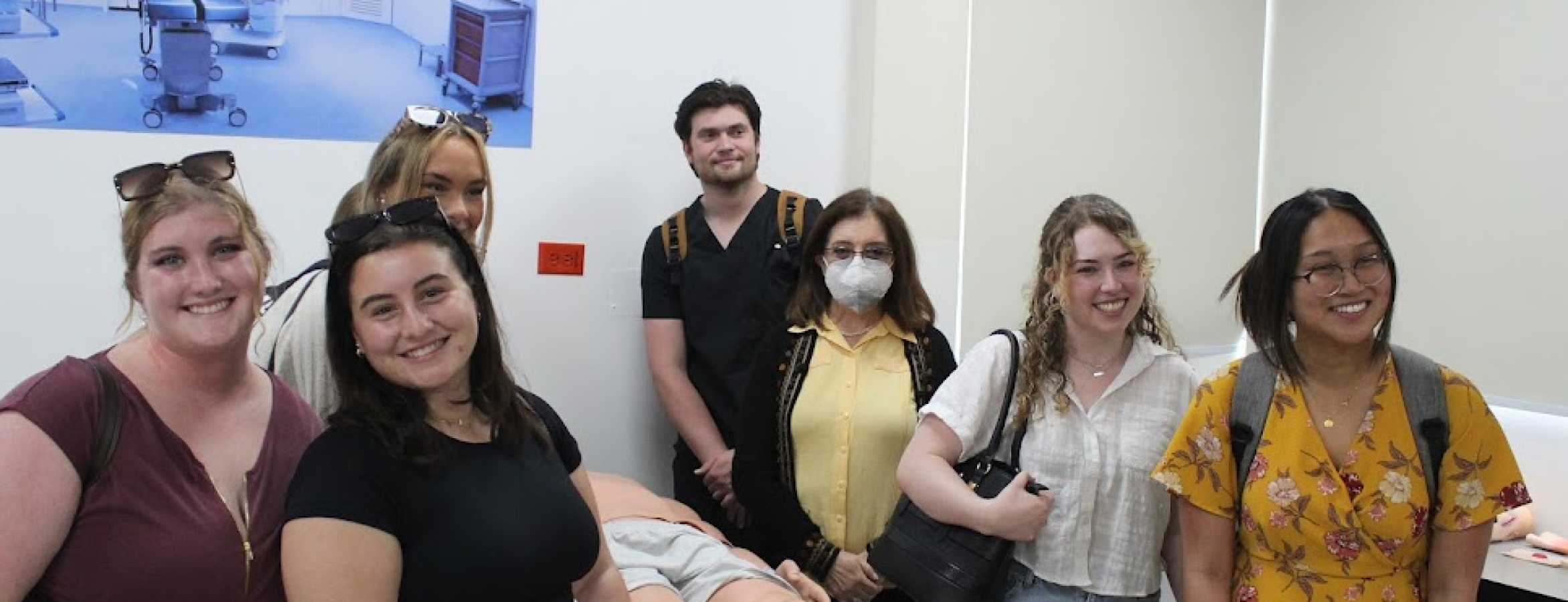When Shannon Sager, a student in Penn State's Eberly College of Science, chose to apply for the global health minor, she knew it would change her life, she said. This summer, she experienced an education abroad program for five weeks in Ecuador studying global health. She shadowed local doctors and learned about the healthcare system differences between Ecuador and the United States.
"It was incredible to be selected for this experience,” she said. “I knew this minor would be the steppingstone into my future career.”
Sager is a senior majoring in general science and minoring in global health; she is specifically interested in infectious diseases. Even before starting her studies, Sager was active in the healthcare field.
She received her medical assistant license before she became a Penn Stater in August 2020. She worked as a medical assistant, performing COVID-19 tests during the height of the outbreak. Sager’s experience working during COVID-19 strengthened her determination to be an infectious disease physician, which motivated her to apply for the global health minor. She said she hopes to research infectious diseases "with a global health aspect."

As part of the global health minor, students must partake in a supervised domestic or international fieldwork experience and transfer their knowledge into hands-on experience. Having this fieldwork experience as an undergraduate is a unique component to the minor that makes it stand out of many students interested in healthcare. Students can gain fieldwork experiences in African countries like South Africa, Tanzania and Ecuador. The college is also developing “new domestic sites" which include “Native American, refugee and other communities.”
According to the Department of Biobehavioral Health’s website, the global health minor aims to cultivate professionals who understand the issues impacting the health of various populations and strengthen students’ capacity to participate across national and cultural borders, and thus greatly enhance their competitiveness when applying for post-baccalaureate training and careers that focus on global issues.
Sager and her classmates traveled to Ecuador for a 5-week study this summer. They chose fields of interest and were able to shadow professionals in healthcare facilities of various medical specialties. The students worked rotations in the clinics in the morning, then had language lessons after. Every week, the students attended guest lectures by doctors or members of the Ministry of Health who spoke on various topics such as indigenous medicine and women’s health.

Sager worked rotations in the specialties of family medicine, mental health/palliative care, pediatrics and emergency medicine. Other students had the opportunity to do rotations in surgery, obstetrics and gynecology, orthopedics and non-governmental organizations (NGOs).
“[In] each place, we all learned something different," Sager said. "After our rotations, we would sit together as a group and just reflect on what we observed and its relation to our studies. Each person’s day was unique."
Sager said the 5-week studies in Ecuador made her "feel acclimated." She lived with a homestay family with two other classmates. By asking many questions of the physicians she worked with, she said she gained a more comprehensive understanding of healthcare in Ecuador, improving her sense of global health. After rotations, Sager and her classmates participated in different excursions like hiking through rain forests, visiting museums and exploring Quito.

She said it was amazing to study abroad and appreciated the academic professors and her cohort. People she worked with included the director of the global health minor, Dana Naughton, who facilitated the program; Joshua Rosenberger and Joseph Gyekis, who were an integral part of the program; and her cohort Abby Williams, Cade Walker, Gabrielle El-Adas, Hannah Montminy, Mary Behr, Lindsay Aluquin, Zoe Rigas, Belle Peterson and Julia Deletto; as well as the people of CFHI (Child Family Health International) who made the trip an unforgettable experience.
Studying in Ecuador provided Sager with "a real-world experience in global health," she said. She found the time shadowing medical facilities and non-governmental organizations gave her a unique perspective in global health, a perspective she believes will make her a better physician, she said.
Sager said her experience in Ecuador was profoundly impactful and reinforced what she wants to do in the future. After graduation, she plans to continue her research journey in infectious disease epidemiology and global health in graduate school.
"We spent weeks reading case studies, speaking with guest speakers, and overall enhancing our understanding of global health, both in the context of Ecuador and the rest of the world. It’s incredible when you're there and seeing it with your own eyes," Sager said. "It gave me that perspective that global health is what I want to do for the rest of my life."
For more information on education abroad experiences offered by Penn State, visit the Penn State Global Education Abroad office website.
